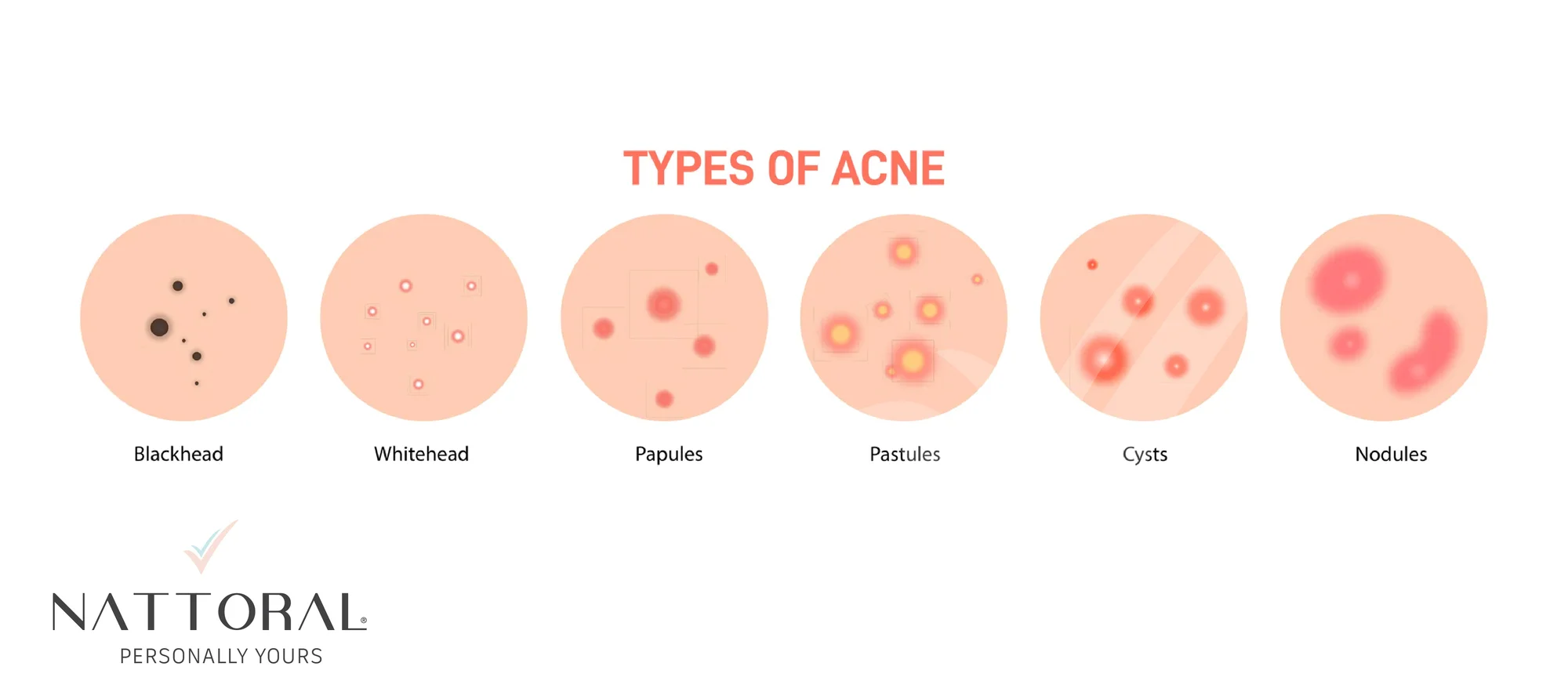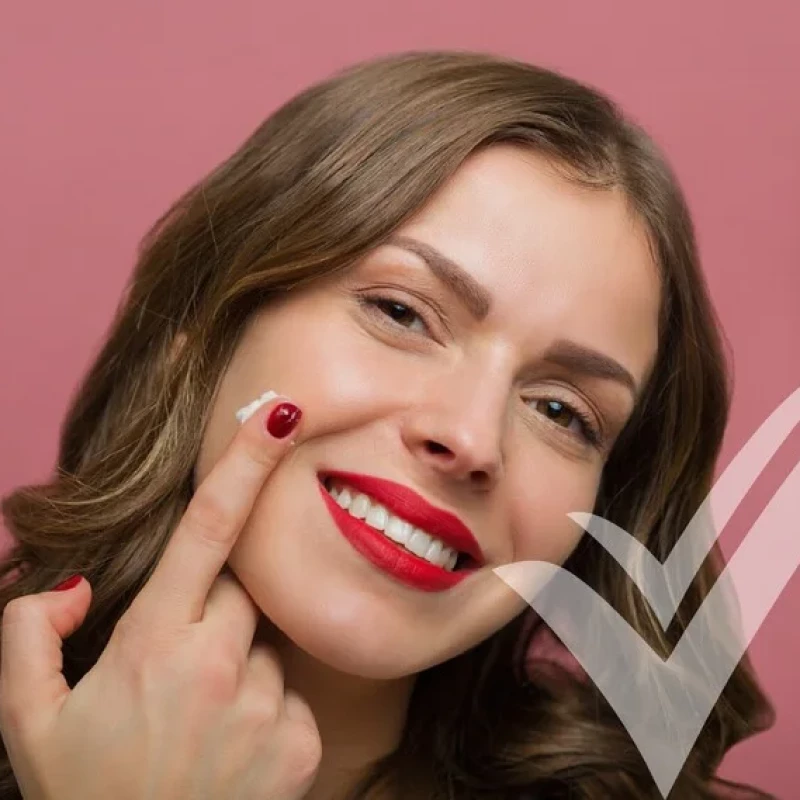roaccutane topical cream
Isotretinoin can be called a magic drug in the world ofskincare. Also known as Accutane or Roaccutane, Isotretinoin is becoming an increasingly popular treatment for acne. However, there’s a lot more to this drug than meets the eye. So keep reading to find out all you need to know about Isotretinoin.
What isIsotretinoin?
Isotretinoin is a prescription drug that is used to treat cases ofacne(1). It is a form of Vitamin Athat is used as a last resort when other remedies have failed at treating acne that cause scarring. This drug works by controlling the sebum production in the glands, thereby preventing bacteria and inflammation(2) Roaccutane and Accutane are actually the brand names of the isotretinoincapsules. These can only be taken with a prescription from an experienced doctor. Besides the tablet, it is also available in the form of a cream and gel.
How Does Isotretinoin Work?
The main cause behind acneis the clogging up of the pores or the hair follicles from excess sebum, dead cells, and bacteria. Certain hormonal changes, medications, diet, and even stress can trigger or worsen acne. However, the main culprit is the clogging up of those pores.Isotretinoin directly tackles that problem. It targets the sebaceous glands connected to the pores and shrinks them in size to limit their oil or sebum production. Once this sebum production is controlled, there’s nothing clogging up your pores and, therefore, nothing to cause acne.
What Kind of Acne is it Good for?
Isotretinoin is an effective treatment foracne. In fact, many celebrities, such as Bella Thorne and Chloe Grace Moritz, have also been known to use it. Here are some issues that this magic drug can help with:

• Cysts:This drug can help treats cystic acne or excessive cysts that appear on the face.
• Greasiness:It controls the oil production in the glands, thereby decreasing greasiness on the face.
• Inflamed spots:It helps clear away inflamed spots, such as red spots, by preventing new spots and helping existing spots to flatten and heal faster.
•Open and closed comedones:This drug can help clear away open and closed comedones. However, it may not be as effective with very large closed comedones.
• Pustules:Isotretinoin helps clear pustules by accelerating the healing process.
• Nodules:It clears these by boosting their healing and preventing new nodules from appearing.
When Should You Use Roaccutane for Acne?
As mentioned earlier, since Roaccutane/Isotretinoinis such a powerful drug, it is often kept as a last resort for acne treatment. When you have tried everything else under the supervision of a dermatologist, and nothing seems to be working, then your dermatologist can discuss with you the probability of startingIsotretinoin.Other than that,Isotretinoin can be used in cases when you have extensive acne, severe cystic or nodular acne, scarring acne, acne causing severehyperpigmentation, and hormonal acne.
Who Should Avoid Isotretinoin?
As great as it sounds,Isotretinoinis not for everybody. The drug does not help with scars, so if youracne has already healed and you’re simply looking to get rid of the scars, you should avoid Isotretinoin.Similarly, the drug also does not help with pores,rednessand hyperpigmentation.More importantly, if you are pregnant or breastfeeding, you should strongly avoid this drug, even if you were using it before. You should also avoid it if you are suffering from any mental issues as the drug can exacerbate them at times.
How Long Must You Use it?
On average, a course of Isotretinoin can last for about five to seven months. However, there are other factors that come into play as well. For instance, if you are taking a lower dose, your course might last longer as compared to those who are on a higher dose. Similarly, it also depends on how your acne reacts to the treatment and at what pace it goes away.
Cost
There are several costs to consider when it comes to this drug. There’s obviously the cost of the tablet itself. But you also have to consider the cost of the consultations, the initial blood tests, and follow-up consultations.
Side Effects ofIsotretinoin
Before using Isotretinoin, you need to know that this drug can have some serious side effects 3. For instance:
• Dryness of lips, nose, eyes and throat is one of the very first side effects of this drug. This can be treated by using the right moisturizer on the face and body and applying lip balms several times a day.
• Nosebleeds can become more frequent with the use of this drug.
• Sensitivity to sunlight increases and that’s why it is important to use sunscreen.
• Flaking and peeling skin occurs on various parts of the body due to excessive dryness.
• Headaches can start off as mild as you begin the course of this drug and can become more severe as well.
• Pains and aches in the joints and lower body are also common and can be easily treated with other medicines.
Other and more uncommon side effects of Isotretinoin include4:
• Liver strain is possible at times due to excessive use of this drug, and that’s why you will need to opt for regular liver tests.
• Thinning hair is another uncommon side effect as some people tend to experience temporary hair loss.
• Depression, anxiety, aggression, mood swings, and some mental health issues can be exacerbated with the use of isotretinoin. However, most people report feeling happier after using this drug.
• Birth defects are a dangerous side effect of this drug for pregnant women consuming it, and it can even increase the risk of miscarriage.
• Eye infection and loss of vision are quite rare but if you do notice any such symptoms, you should consult your doctor right away.
• Ulcers can be another rare yet dangerous side effect of this drug.
• Skeletal changes, such as calcification of tendons, can occur due to prolonged usage of this drug.
Final Thoughts
Now that you know all you need to know about Isotretinoin, it’s time to make a decision. While this magic drug certainly sounds amazing, it is clear that it does not come without risks.Therefore, we strongly recommendnot taking this drug on your own. Instead, you should consult your dermatologist or any other professional to assess your skin and then determine if this drug is the right one for you.
Reference
- Isotretinoin (Roaccutane/Accutane). (n.d.). Retrieved January 31, 2021, from Midlandskin.co.uk website: https://www.midlandskin.co.uk/conditions/isotretinoin/
- Roaccutane: What you need to know before taking the acne treatment. (2018, August 30). Retrieved January 31, 2021, from Marieclaire.co.uk website : https://www.marieclaire.co.uk/beauty/skincare/roaccutane-side-effects-results-613701
- Layton, A. (2009). The use of isotretinoin in acne. Dermato-Endocrinology, 1(3), 162–169.
- Isotretinoin capsules (Roaccutane). (n.d.). Retrieved January 31, 2021, from Nhs.uk website: https://www.nhs.uk/medicines/isotretinoin-capsules/


